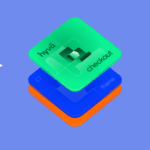Scripting language
The scripting language is a language for programming small and medium-sized programs. The term is derived from the word “scripting” and means summarizing and storing program calls in a script. To be able to process the execution results of the program calls, language elements were added. Thus, scripting evolved into the scripting language.
Types of the script language
Basically, a distinction is made between the client-side scripting language, where the language is executed on the client, and the server-side scripting language, where the language is executed on the server. The most popular scripting languages include JavaScript, ASP, Perl, Python, PHP, VBA. A distinction is made between traditional and modern languages. In the traditional scripting language, each instruction is interpreted and translated into a readable machine code. Only when this process is complete, the code can be executed. Compared to the traditional one, a modern script language is able to translate the entire source code into intermediate codes before execution, but there is no storage. The intermediate codes are interpreted and executed only afterwards. This enables early error detection, an increase in quality and an increase in execution speed. The advantages of the modern script language are the easy learnability as well as a high flexibility and speed with the execution of small and medium-size programs.
Application of the scripting language
Developers like to use the scripting language for web applications or integration tasks. The Pearl scripting language is used in many areas. Especially often in CGI programming. CGI is an interface that allows the server to develop dynamic web pages. This can be used to create applications ranging from a simple guestbook to very complex systems. In addition, Perl is used in bioinformatics. There, data from the field of biology is analyzed, organized and stored. Furthermore, it is used for data mining, in which, for example, raw data is transformed into usable formats. For the creation of online stores, for example, the script language PHP can be used. In addition, this language is used in all areas of web programming and the development of content management systems and dynamic websites. Python, another very well-known scripting language, is especially focused on Internet applications such as creating graphical interfaces or supporting database connections.
Scripting and other programming languages
Modern scripting languages are now similar to traditional programming languages. They store intermediate codes and today also have complex data types as well as programmed techniques. The distinction between the scripting language and the programming languages is in the application. However, the script languages are not suitable for the development of complex and very extensive programs.










